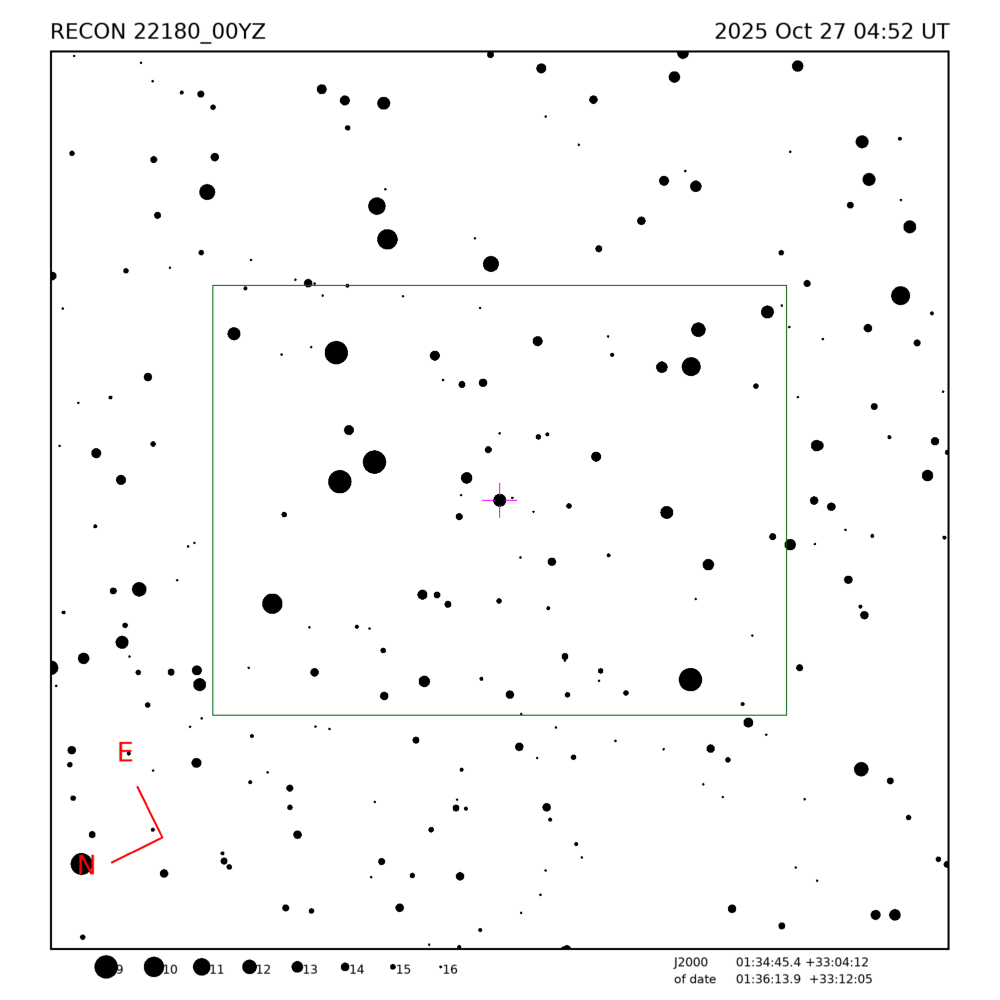
Occultation event with (22180) 00YZ, event index number 1424
Regions able to see the event: US,Europe,UVa,SMexico
Geocentric closest approach at 2025/10/27 04:52:25 UTC
J2000 position of star is 01:34:45.4 +33:04:12
Equinox of date position of star is 01:36:13.9 +33:12:05
Star is 118 degrees from the moon. Moon is 27% illuminated.
Stellar brightness G=12.8, apparent brightess of occulting body is G=14.8
Use an exposure time of 0.12 seconds with the standard RECON-QHY system.
SNR of 12.8 per integration for unocculted signal
Expected flux drop is 87% with SNR of 11.1 for the occulted depth (per occulted point)
Apparent velocity is 18.1 km/sec on the sky relative to the star, or, 23.2 arcsec/hr.
Position angle of asteroid motion is 48.3 degrees
The recommended exposure time corresponds to 2.2 km per image.
The 1-sigma error in the time of the event is 1.0 seconds.
The 1-sigma cross-track error in the shadow position is 20.2 km.
The sky-plane scale is 2800.2 km/arcsec.
Diameter estimates:
53.5 km assuming a 5% albedo, maximum of 3.0 sec for a central chord
21.8 km assuming a 30% albedo, maximum of 1.2 sec for a central chord
Cross-track diameter of 39.8 km used for deployment plan.
Star training set for 22180_00YZ, (2025/10/27 04:52UT) Object RA Dec mag sep mel Aldebaran 04:37:24.3 +16:33:33 0.8 43.92 152 57Gam1And 02:05:29.8 +42:27:08 2.3 10.90 126 PPM 066368 01:33:36.4 +34:55:56 6.4 1.81 118 PPM 066447 01:38:17.1 +32:59:04 8.5 0.48 119 PPM 066439 01:37:51.9 +33:27:34 9.5 0.43 119 PPM 066399 01:35:39.1 +33:09:22 10.5 0.13 118 22180_00YZ 01:36:13.9 +33:12:05 14.8 119 Positions are for equinox of date

This table contains the target star visibility for registered US sites that are relevant for this occultation. This list has been filtered to only those sites that can see the field and are within range of the shadow given the uncertainties. The observing time range has been calculated to cover the time of the event at each site with allowances for the event timing uncertainty plus time for obtaining a pre and post event baseline lightcurve. This set of stations has a 0.0 % chance of getting at least one chord. There is a 0.0% chance of 2 or more chords assuming clear weather for all.
| Site Name | Site mid-time (UT) |
Sun alt (deg) |
Sky | Moon | Star alt (deg) |
Star az (deg) |
Target | Observing Time | Xtrack (km) |
Prob |
|---|---|---|---|---|---|---|---|---|---|---|
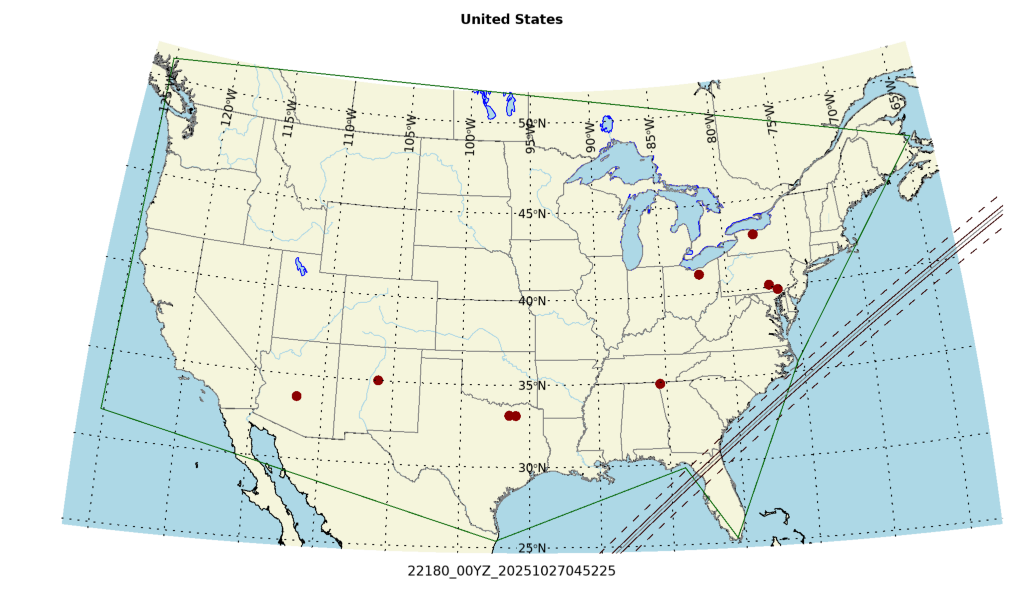
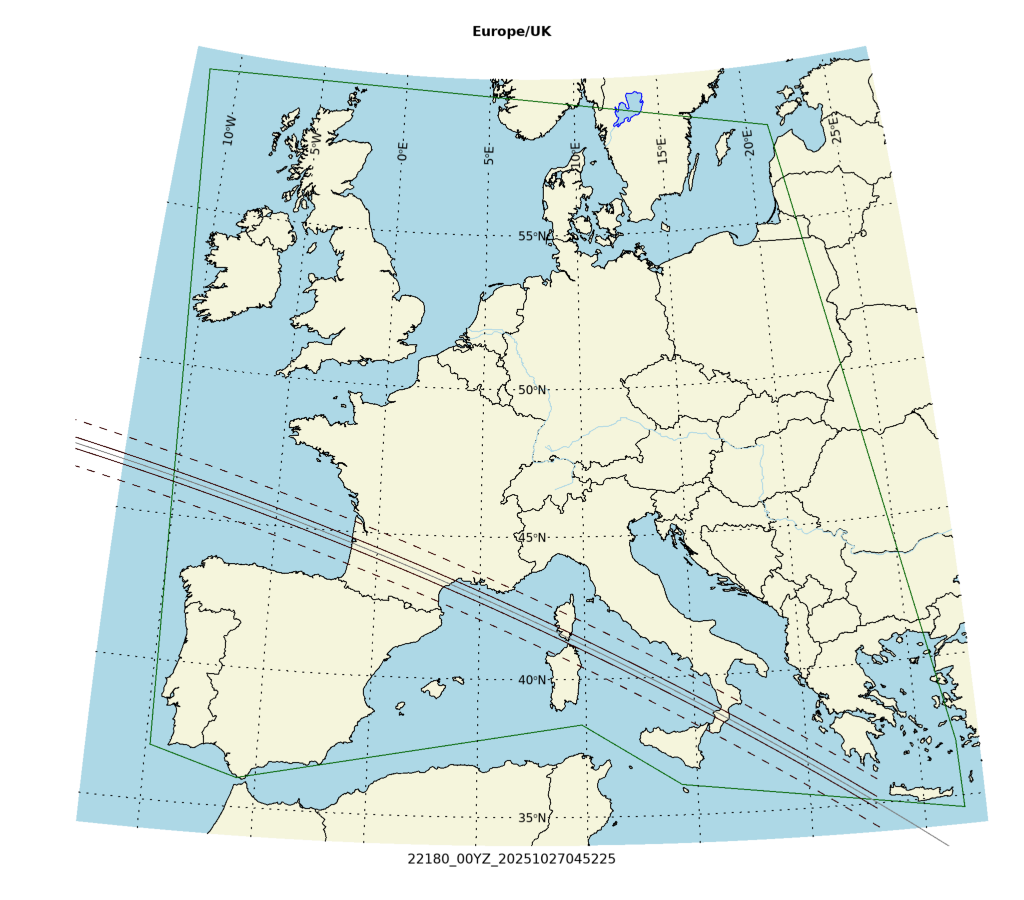
This table contains the target star visibility for registered UVa sites that are relevant for this occultation. This list has been filtered to only those sites that can see the field and are within range of the shadow given the uncertainties. The observing time range has been calculated to cover the time of the event at each site with allowances for the event timing uncertainty plus time for obtaining a pre and post event baseline lightcurve. This set of stations has a 0.0 % chance of getting at least one chord. There is a 0.0% chance of 2 or more chords assuming clear weather for all.
| Site Name | Site mid-time (UT) |
Sun alt (deg) |
Sky | Moon | Star alt (deg) |
Star az (deg) |
Target | Observing Time | Xtrack (km) |
Prob |
|---|---|---|---|---|---|---|---|---|---|---|
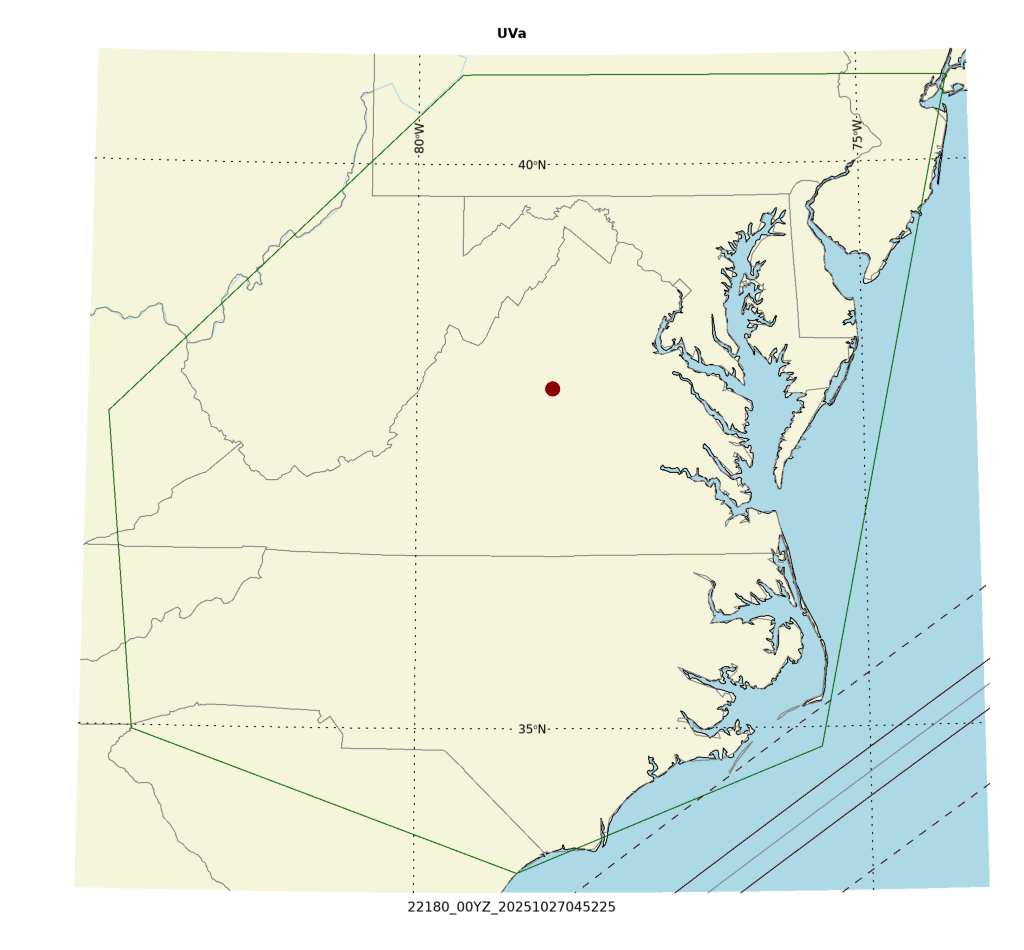
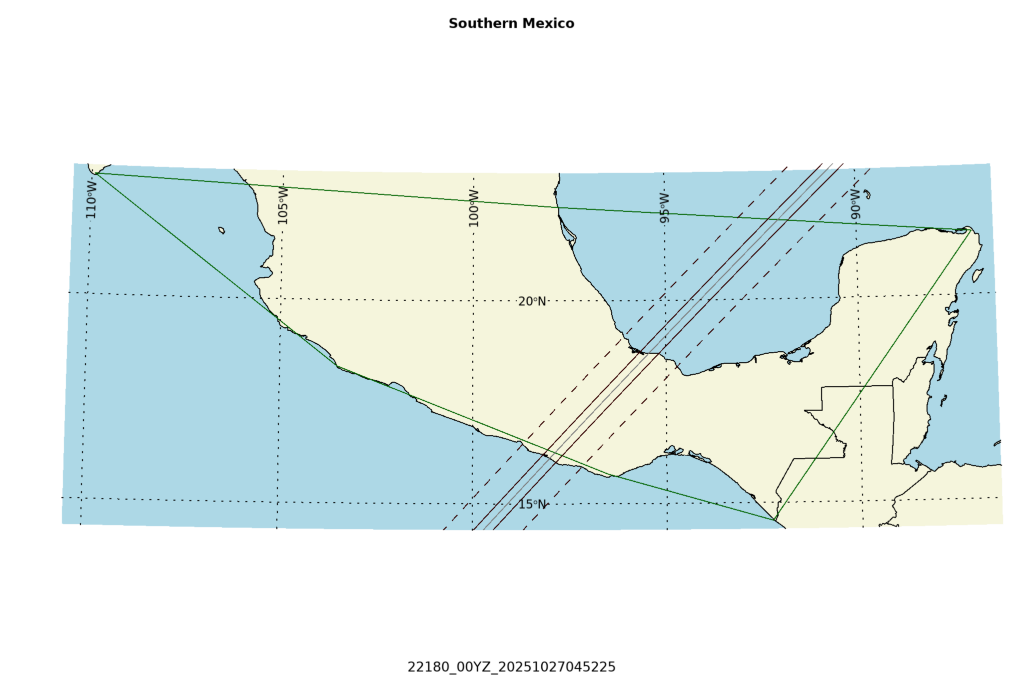
Star training set for 22180_00YZ, (2025/10/27 04:52UT) Object RA Dec mag sep mel Aldebaran 04:35:55.4 +16:30:29 0.8 43.92 152 57Gam1And 02:03:54.1 +42:19:46 2.3 10.90 126 PPM 066368 01:32:07.6 +34:48:00 6.4 1.81 118 PPM 066447 01:36:48.5 +32:51:13 8.5 0.48 119 PPM 066439 01:36:23.1 +33:19:43 9.5 0.43 119 PPM 066399 01:34:10.7 +33:01:28 10.5 0.13 118 22180_00YZ 01:34:45.4 +33:04:12 14.8 118 Positions are for J2000